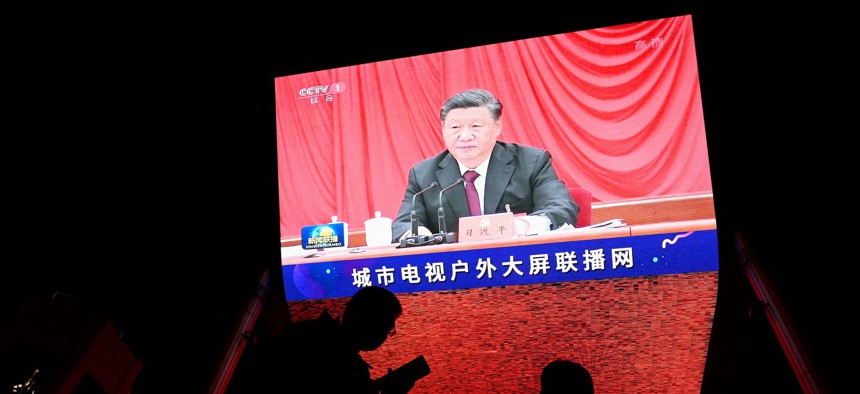Xi Jinping’s effort to cement lifelong power brings rigidity and fragility.
By Matthew Brazil and Peter Singer
DEFENSE ONE, November 16, 2021
By revising official history to glorify himself, Xi Jinping is taking a page from China’s earlier rulers, not to mention Russia’s Stalin and Putin. But what may have worked in the past is far more dangerous and destabilizing in our hyperconnected present and near future.
The worshipful tones in official Chinese media coverage of this week’s plenum, or meeting, of the Chinese Communist Party’s Congress recall earlier centuries’ attempts to make the past serve the present. The ruthless emperor Qin Shi Huang (259-210 BCE) killed hundreds of scholarly critics and torched thousands of books to glorify himself and erase the achievements of predecessors and rivals. Not to be outdone, CCP founder Mao Zedong (1893-1976) quipped that although the emperor Qin “buried 460 scholars alive—we have buried 46,000…we have surpassed Qin Shi Huang a hundredfold.”
After Mao’s passing in 1976, Deng Xiaoping ascended to become paramount leader of the CCP, and therefore of China. He banned “all forms of personality cult” and installed a collective leadership in the place of the previous de facto emperor, Mao. But that was an illusion: in 1989, CCP Secretary Zhao Ziyang publicly revealed that he—on paper, the country’s the top leader—was not really in charge. Final decisions were made by Deng Xiaoping, under a secret order issued two years earlier at the 13th Party Congress. Deng was retired only in form, not in reality.
For the complete article, go to DEFENSE ONE
